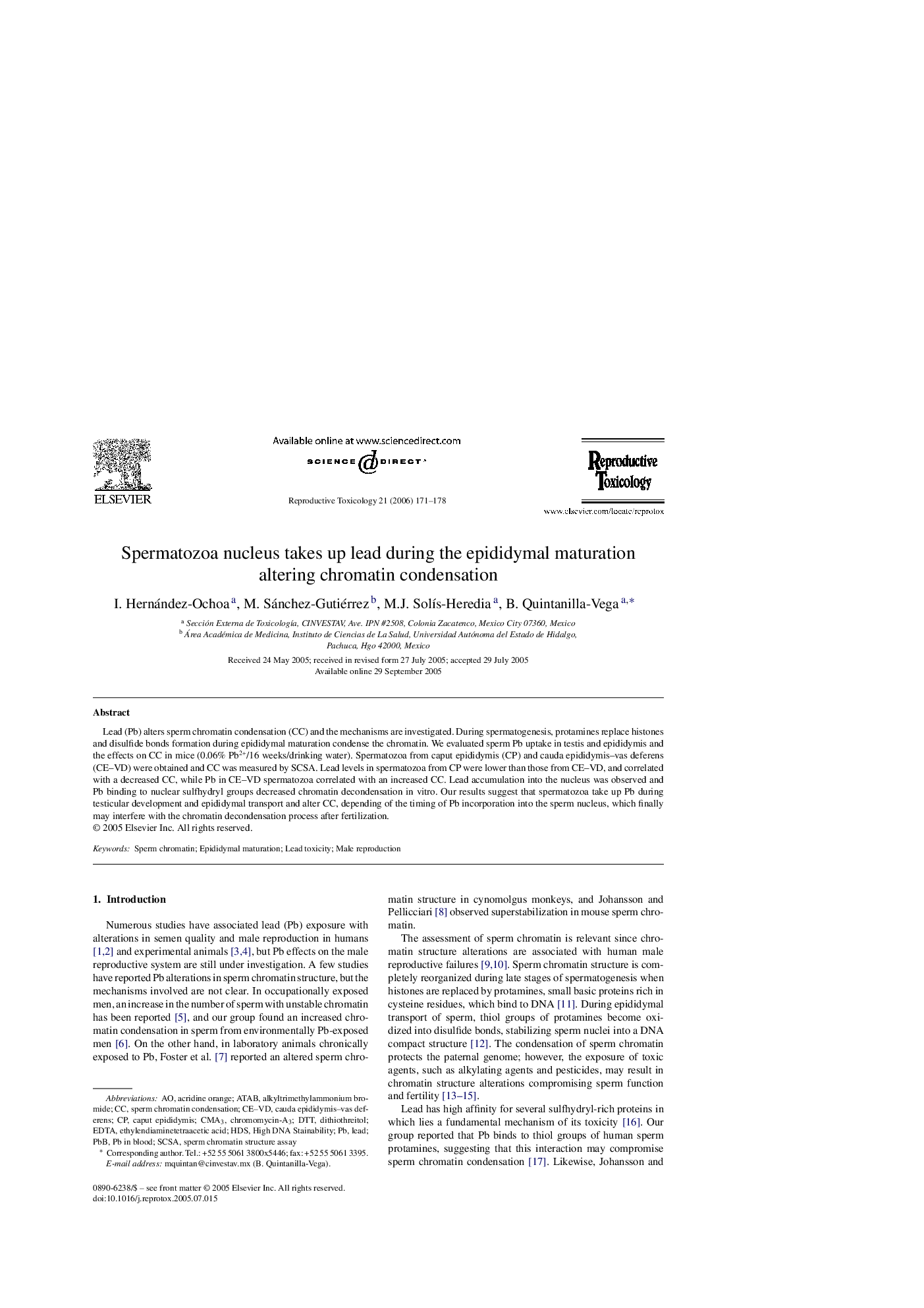| Article ID | Journal | Published Year | Pages | File Type |
|---|---|---|---|---|
| 2595165 | Reproductive Toxicology | 2006 | 8 Pages |
Lead (Pb) alters sperm chromatin condensation (CC) and the mechanisms are investigated. During spermatogenesis, protamines replace histones and disulfide bonds formation during epididymal maturation condense the chromatin. We evaluated sperm Pb uptake in testis and epididymis and the effects on CC in mice (0.06% Pb2+/16 weeks/drinking water). Spermatozoa from caput epididymis (CP) and cauda epididymis–vas deferens (CE–VD) were obtained and CC was measured by SCSA. Lead levels in spermatozoa from CP were lower than those from CE–VD, and correlated with a decreased CC, while Pb in CE–VD spermatozoa correlated with an increased CC. Lead accumulation into the nucleus was observed and Pb binding to nuclear sulfhydryl groups decreased chromatin decondensation in vitro. Our results suggest that spermatozoa take up Pb during testicular development and epididymal transport and alter CC, depending of the timing of Pb incorporation into the sperm nucleus, which finally may interfere with the chromatin decondensation process after fertilization.
